With the advent of social media, the Canal has now become world famous for its bass blitzes. These are the days when thousands of fish invade the land cut, and feed aggressively on prey such as mackerel, menhaden and herring.
If you are fortunate to happen upon such a blitz, you probably will never forget it.
In recent years during a blitz I won’t even fish. Instead I put the rod down and just watch nature do its thing. On these days it can feel as if you are witnessing a Discovery Channel or Planet Earth episode!
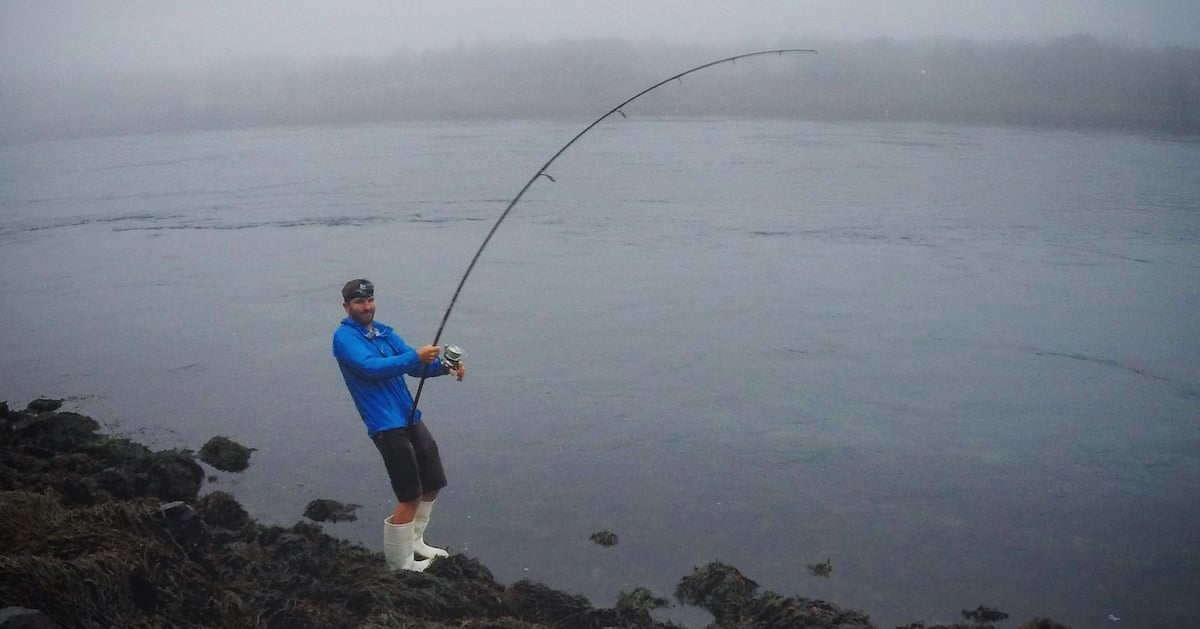
During the summer of 2017 it seemed as if every day at the canal was a blitz. Thousands upon thousands of striped bass spent the entire summer in the canal, feasting on mackerel daily.
My First Canal Blitz Experience
I remember hearing stories about incredible bass blitzes at the Canal as a kid. Back then I really had zero clue as to how to catch a striped bass from the Canal. But I do remember watching big fish crush bait on the surface as I rode over the Sagamore Bridge on the school bus-which believe me was torturous!
Then finally it happened. I was 13 years old at the time and was fishing for sun fish with corn at a local pond with my fishing buddy Jason Mazzola. We were really doing some damage on 4-6 inch long sun fish when suddenly my Dad came running down the hill towards the pond.
“You guys need to wrap this up and come with me right now!” he yelled at us.
“Are we in trouble?” I asked him.
“No there is a HUGE striper blitz happening at the Canal right now! Thousands of birds and huge bass are everywhere!” my Dad replied.
He then held up his little spinning rod, which had been spooled by a fish.
“I cast a curly grub tail out 20 feet into the Canal was immediately spooled!” he exclaimed.
Well that was enough proof to convince Jason and I that we needed to wrap up our freshwater fishing excursion and head down to the Canal with my Dad. When we arrived at the Canal’s East End I was greeted by the biggest striped bass blitz I had ever seen. Big bass and birds were everywhere and in every direction for as far as you could see.
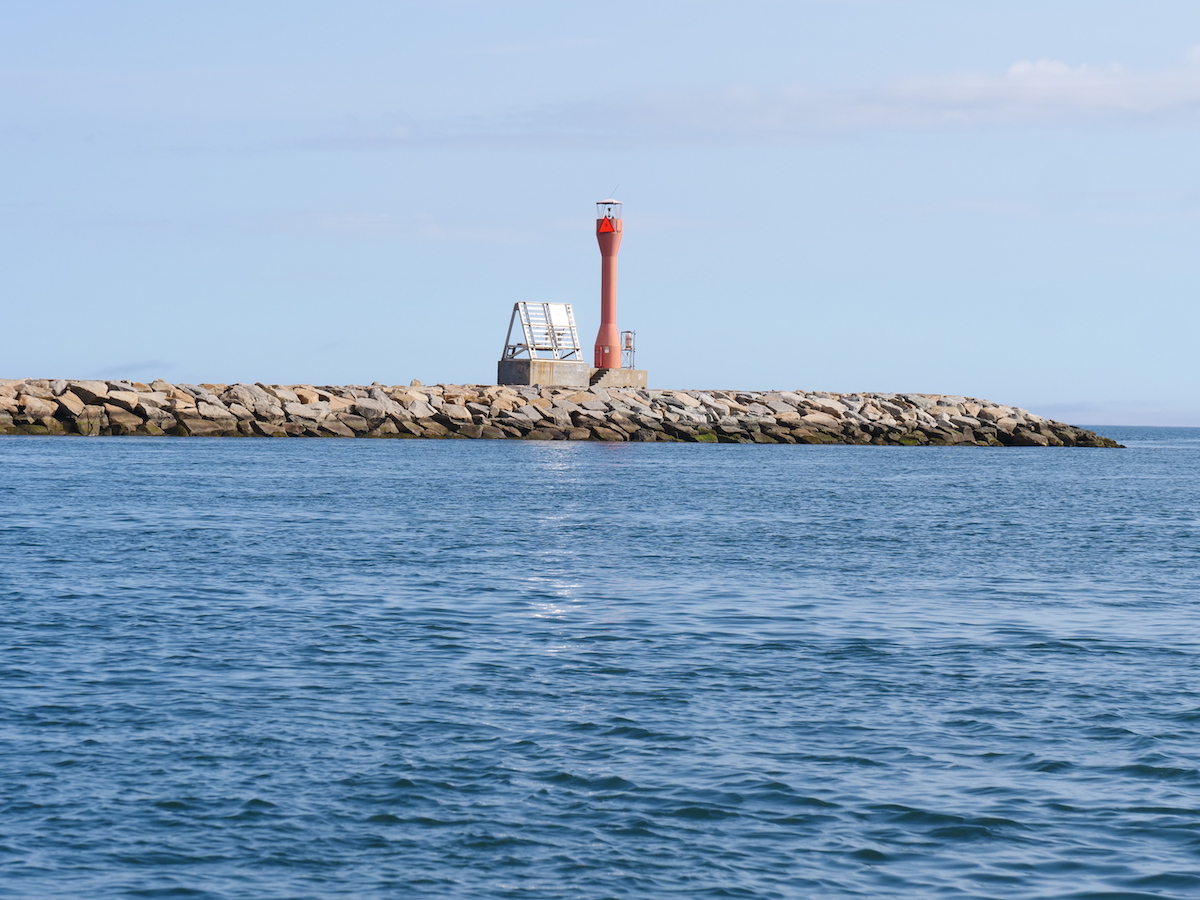
I encountered my fist-ever canal blitz at the East End. Pictured here is the Scusset Beach foghorn at the tip of the Scusset Beach jetty, which is a the easternmost end of the canal.
I heaved a Kastmaster out as far as I could using my Dad’s ancient 11 foot surf casting setup. It was not long until that piece of metal was engulfed by a fish. Unfortunately the ancient drag on the reel seized up, quickly snapping the mono line.
“That fish was huge!” I remember thinking.
I quickly retied and cast another Kastmaster out into the Ditch. The bite came quick and was so powerful that it yanked me from the rock, face first into the Canal! I laid there for a second submerged in a foot of water, holding onto the pole with one hand.
I was not about to lose this fish!
My Dad and Mazzola ran over and helped me back to my feet. I was bleeding pretty good from my leg but honestly didn’t care one bit. By that time a small crowd of onlookers had gathered on the bike path watching me reel in what was at the time the biggest fish of my life.
Finally after 20 minutes I had her on the rocks. A beautiful 35 incher! Definitely no world record, but for me as a 13 year old it was the equivalent of winning the lottery. I was hooked!

This is perhaps the most memorable striper catch of my life - the 35 incher that pulled me off a slippery rock into the canal during my first-ever canal blitz.
Topwater Frenzies
These top water feeding frenzies are what fishing the Cape Cod Canal is all about. Where else in the world can you fish standing on a rock, while 20-50 pounders crush bait fish in just inches of water?
Big bass blitzes certainly do not happen every day at the Cape Cod Canal. Trying to predict when a big blitz will occur can be painstakingly difficult, but nonetheless important-especially for folks who have to make a long drive to get to the Ditch.
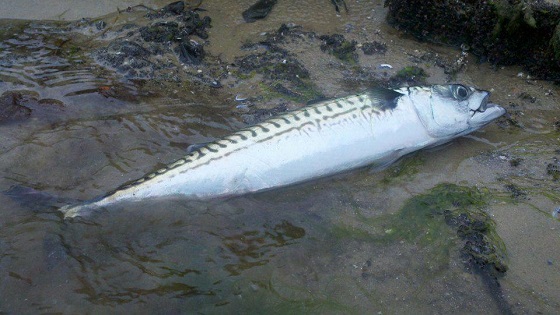
Mackerel and other baitfish will sometimes get chased right up onto the rip rap during a canal blitz. In moments like these it's possible to live-line baits, which is a unique shore fishing experience to say the least!
So how can you boost your odds of getting in on an epic Cape Cod Canal feeding frenzy?
To be honest, this question still has me a bit bamboozled. However I think there are at least a few ways of increasing your odds of this happening on the day that you decide to go fishing.
Time of the Day
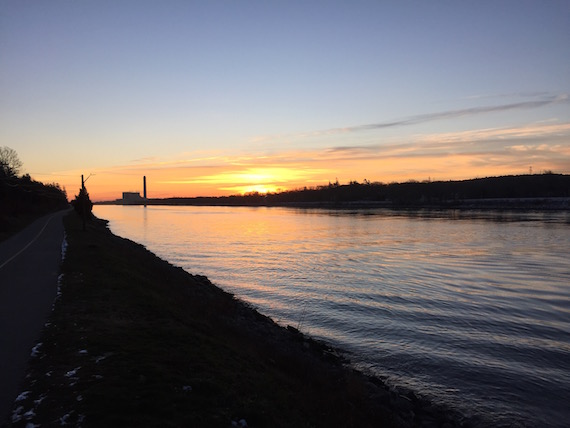
Early morning is typically your best bet for encountering a canal blitz.
Most of the best bass blitzes I have been a part of have occurred from mid-May through mid-October during the morning. That magical window of time between dawn and 7am has always produced the best top water action for me.
Occasionally blitzes will last right through mid morning, early afternoon and sometimes all day. Day long blitzes are unusual however they do seem to happen at least once or twice a season.
However for your best shot at a blitz, be sure to get down to the Canal just before sunrise. Remember that many other anglers will have the same idea, so you may even want to get their during the dark in order to claim a decent casting spot.
The Best Tide for a Blitz
Blitzes can happen at any stage of the tide, but most of the blitzes I've experienced have happened in the morning when the east tide starts moving at sunrise or a little before sunrise. In other words, the canal's current is moving from Buzzard's Bay towards Cape Cod Bay early in the morning.
It is when the canal's current changes from west to east around sunrise. Another way to explain it is that this is when the last part of the ebb/outgoing and the first part of the flood/incoming happen at or around sunrise.
At this stage of the tide there is less water in the canal, so there is literally less room for baitfish to escape. These are called "Breaking Tides" and they last for three or so days in a row.
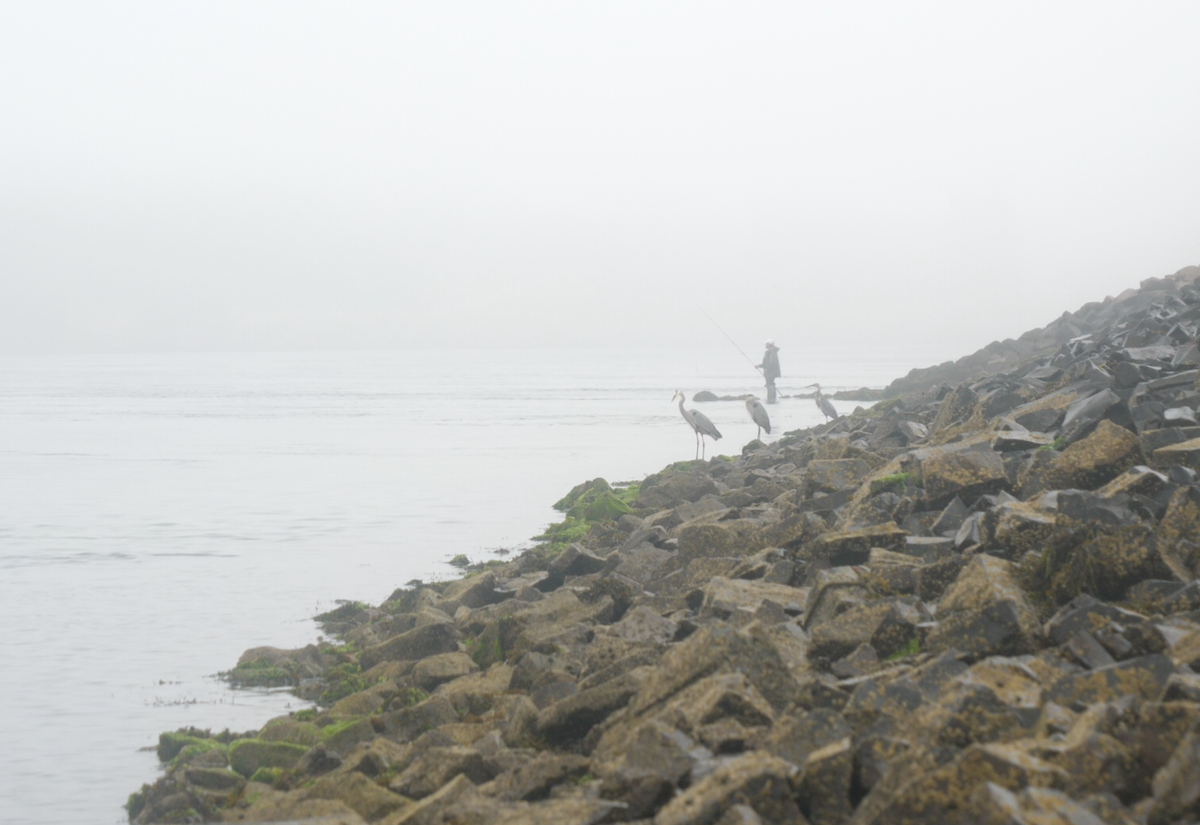
During breaking tides there is less water in the canal so there is literally less space for baitfish to escape. It also makes it easier for anglers because there's more rom to fish and cast.
Reporting
Obviously you can’t fabricate a bass blitz out of thin air. There needs to be a large population of striped bass within the vicinity of the Cape Cod Canal for a blitz to occur. If you have to travel a ways to get to the Big Ditch, it may help to research as many Buzzard’s Bay and Cape Cod Bay fishing reports as possible before making the trip.
The best bass blitzes historically happen in the spring and the fall, but they can happen during the summer too. What you need are baitfish to spark the blitz. For example, sometimes thousands of mackerel will setup in the canal. When this happens it isn't long until schools of stripers move in too.
In the spring, if you hear about huge schools of stripers in Buzzard’s Bay off Bourne and Wareham, then there's a fair chance these fish will eventually be making their way northward into the Canal, so be ready to get to the Canal.
In the fall, if you hear about huge schools of bass in Cape Cod Bay off Sandwich and Barnstable, then there's a fair chance that these fish will go through the Canal in the next 24-72 hours on their way south.
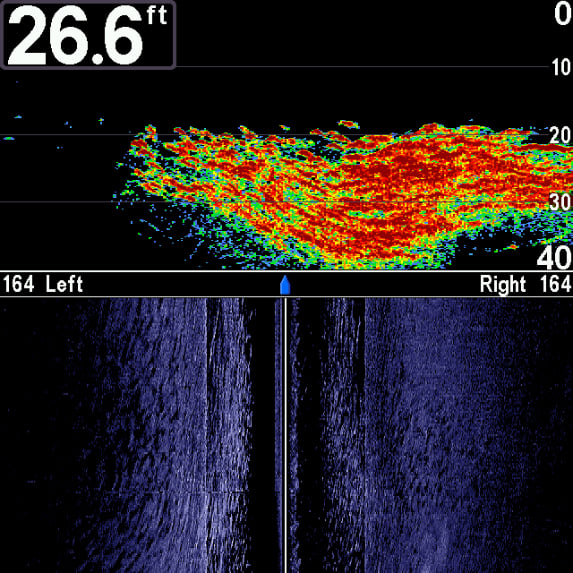
Of course there's no guarantee that the schools will use the canal. However I've witnessed this scenario play out a bunch of times. I will encounter big schools of bass while fishing from my boat in Cape Cod Bay or Buzzard's Bay, and then a day or two later I hear about huge blitzes in the canal.
In Conclusion
There is no perfect equation to be predicting when a Cape Cod Canal striped bass blitz will occur. However you can, without a doubt, increase your odds of cashing in on a big time blitz by incorporating the above into your striped bass fishing tactics.

